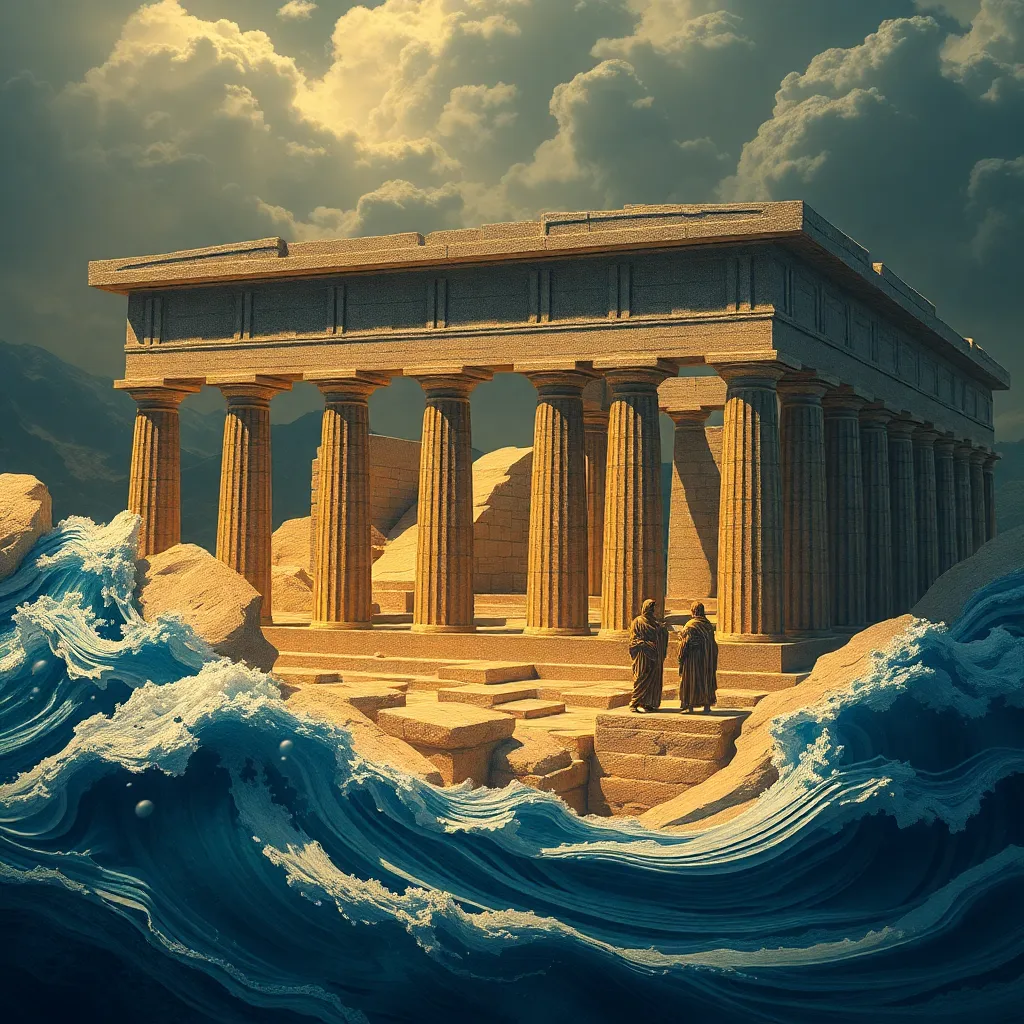The Odyssey’s Influence on Modern Literature and Culture
I. Introduction
“The Odyssey,” attributed to the ancient Greek poet Homer, is a cornerstone of Western literature, composed in the 8th century BCE. This epic poem narrates the adventurous return of Odysseus to his homeland, Ithaca, after the Trojan War, and serves as a profound exploration of human experience, resilience, and the quest for identity.
The historical context of “The Odyssey” is rooted in a time when oral traditions were paramount, and storytelling was a means of preserving cultural values and history. As one of the oldest works of Western literature, it has influenced countless authors, poets, and artists throughout the ages.
This article aims to explore the profound influence of “The Odyssey” on modern literature and culture, highlighting its thematic elements, literary adaptations, and its presence in contemporary media.
II. Thematic Elements of “The Odyssey”
The thematic richness of “The Odyssey” has made it an enduring source of inspiration. Key themes include:
- Heroism and the archetype of the hero’s journey: Odysseus embodies the complexities of heroism, showcasing both strengths and vulnerabilities as he navigates his journey home.
- Themes of fidelity, family, and homecoming: The poem explores the bonds of family and the struggles associated with loyalty, particularly through the character of Penelope, who waits faithfully for Odysseus.
- The role of fate and the divine in human lives: The interplay between human agency and divine intervention is a recurring motif, as gods like Athena and Poseidon influence Odysseus’s journey.
III. Direct Literary Influences
The legacy of “The Odyssey” can be seen in numerous literary adaptations and retellings:
- Adaptations and retellings of “The Odyssey”: Numerous authors have reimagined the tale, including translations and modern adaptations that bring the story to contemporary audiences.
- Authors inspired by Homeric themes: Notable figures such as James Joyce in “Ulysses” and Margaret Atwood in “The Penelopiad” draw upon the themes and structure of “The Odyssey” to explore modern existential dilemmas.
- The impact on narrative structure and character development: The episodic nature of Odysseus’s journey has influenced the structure of contemporary novels, encouraging authors to experiment with time, perspective, and character arcs.
IV. “The Odyssey” in Modern Poetry and Drama
The influence of “The Odyssey” extends beyond prose into poetry and drama:
- Poets who draw from Homeric themes: Contemporary poets like Derek Walcott have engaged with the epic, exploring its themes of journey and identity in works such as “Omeros.”
- Modern theatrical adaptations and interpretations: The story of Odysseus has inspired various stage productions and adaptations, reinterpreting the epic for new audiences.
- The influence on performance art and storytelling: Elements of “The Odyssey” are often incorporated into performance art, emphasizing the art of storytelling and its relevance in today’s cultural landscape.
V. Cultural References and Popular Media
In popular culture, “The Odyssey” has left a significant mark:
- Allusions in films, television shows, and video games: Many films and series reference Odyssean themes, such as “O Brother, Where Art Thou?” which parallels Odysseus’s journey with that of modern-day characters.
- The use of Odyssean elements in graphic novels and comics: Graphic adaptations of “The Odyssey” have emerged, making the epic accessible to younger audiences and visual storytellers.
- The adaptation of themes in contemporary music and lyrics: Modern songs often evoke themes of journey, longing, and homecoming, echoing the emotional depth of Odysseus’s experiences.
VI. Educational Impact
“The Odyssey” remains a vital component of literature curricula worldwide:
- The role of “The Odyssey” in literature curricula: Many educational institutions include “The Odyssey” as part of their syllabi, recognizing its literary significance and its ability to provoke critical thought.
- Efforts to engage students with Homeric texts: Innovative teaching methods, including interactive discussions and comparative analyses, help students connect with the text’s themes and historical context.
- Comparative studies between “The Odyssey” and other cultural texts: Scholars often explore parallels between “The Odyssey” and other epics, fostering a deeper understanding of narrative traditions across cultures.
VII. The Odyssey and Contemporary Issues
In today’s world, “The Odyssey” resonates with contemporary issues:
- Exploration of themes such as displacement and identity: Modern interpretations of the epic often address issues of migration, identity, and the search for belonging, reflecting societal challenges faced today.
- How modern authors address societal challenges through Homeric lenses: Writers utilize Odyssean themes to comment on contemporary realities, exploring how personal journeys parallel larger societal narratives.
- The relevance of Odyssean themes in discussions of immigration and belonging: As global displacement increases, the themes of homecoming and the longing for connection in “The Odyssey” become ever more pertinent.
VIII. Conclusion
The influence of “The Odyssey” on modern literature and culture is profound and far-reaching. From its timeless themes of heroism, fidelity, and the quest for identity to its numerous adaptations and references in contemporary media, the epic continues to inspire and resonate with audiences around the globe.
In summary, the enduring legacy of “The Odyssey” shapes modern thought and artistic expression, offering insights into the human experience that remain relevant in our rapidly changing world. As we explore the continued relevance of Homer in contemporary society, it is clear that the journey of Odysseus is not merely a tale of the past but a reflection of our ongoing quest for meaning and belonging.




